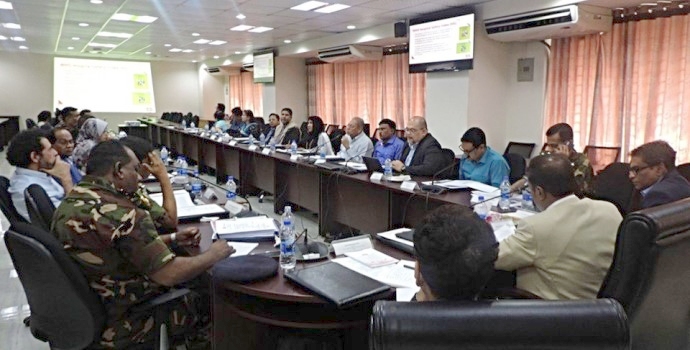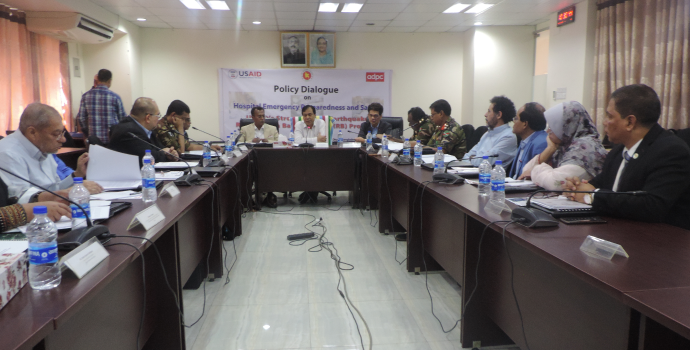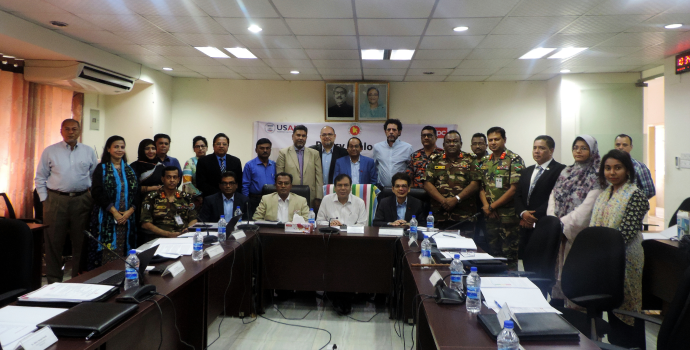- About Us
-
Who we are
-
- Publications
-
- ADPC Academy
-
MediaADPC'S NEWS
Developing a safer and resilient health sector with expert discussions Developing a safer and resilient health sector with expert discussions
18 Nov 2019
Dhaka, Bangladesh

Participants discussing how to safeguard health facilities against disasters in Bangladesh
ADPC attended a policy dialogue on ‘Hospital Emergency Preparedness and Safety’ in Dhaka, Bangladesh to promote strategic leadership among decision-makers for making health facilities safer against disasters. The dialogue was organized by ADPC with United States Agency for International Development (USAID) and Directorate General of Health Services (DGHS) under USAID’s Strengthening Earthquake Resilience in Bangladesh (SERB) initiative.
A total of 27 participants from National Institute of Preventive and Social Medicine (NIPSOM), Fire Service and Civil Defence, local public hospitals, USAID Bangladesh, World Health Organization (WHO) Bangladesh, Department of Disaster Management (DDM) and Bangladesh Red Crescent Society (BDRCS) attended the dialogue.

Prof. Dr. Abul Kalam Azad, Director General at DGHS (center) chairing the policy dialogue
Prof. Dr. Abul Kalam Azad, Director General at DGHS chaired the dialogue which composed of four panelists – Brig. Gen. Dr. Nasiruddin, Director at Dhaka Medical College Hospital (DMCH), Dr. A K Mahbubul Hoque, Hospital Director at Bangabandhu Sheikh Mujib Medical University (BSMMU), Brig. Gen. Dr. Morshed Rashid, Director at Sir Salimullah Medical College Hospital (SSMCH), Prof. Dr. Baizid Khoorshid Riaz, Director at NIPSOM. Mr. Sisira Madurapperuma, Director at ADPC and Dr. Hammam El Sakka, Senior Medical Epidemiologist, WHO Bangladesh oversaw and also contributed to the discussions.

Participants of the policy dialogue posing for a group photo
The dialogue discussed strategic directions and policies regarding safe hospitals through the institutionalization of SERB, and panelists agreed on the necessity of changing existing policies regarding preparedness and safety of hospitals.
Participants agreed on the adaptation and institutionalization of trainings and risk assessments under SERB, and risk assessments for each hospital will be conducted to update the Emergency Response Plan (ERP) every year.
Latest NewsRelated Trainings
-